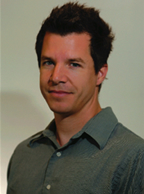Addressing Intervention Strategy for Service Providers
Intervention research will be discussed at the Dec. 1 AIDS symposium on campus
October 29, 2007
By Mimi Ko Cruz
Learning that you or a partner has AIDS or HIV sometimes triggers suicidal tendencies or other violent reactions. And, Anthony DiStefano, assistant professor of health science, wants to know how to best intervene.
With an increasing number of studies showing a connection between violence and people with the incurable disease, intervention could help stem the growing trend. That is the focus of DiStefano’s current research and the topic he will discuss at the Dec. 1 AIDS symposium on campus.
Through his research, DiStefano discovered that it is when people are first told they are HIV positive that they are at higher risk of becoming suicidal. When they disclose their disease to their partners and others, they are at a higher risk of becoming the victims of violence, depending on how people react to the news.
“Knowing that these types of connections exist,” DiStefano said, “I want to discover what medical and social service providers are doing to address these issues.”
He is finding out by interviewing providers throughout the San Francisco area.
“From preliminary data, it doesn’t look like there are specific protocols for medical or social service providers,” DiStefano said, adding that he plans to expand his interviews with a larger survey to include more areas in California.
“There’s a gap in our knowledge as far as intervention efforts and it’s important to link our research to the providers because they are in contact with the people at risk,” he said. “They need this information to figure out ways to intervene and help. I’m hoping the providers get training on assessment so they can plan appropriate actions for those in need.”
DiStefano joined the CSUF faculty this fall. He holds a doctorate in public health from UCLA. His training, graduate studies and research focused on violence among sexual minorities (lesbian, gay, bisexual, transgender and those with ambiguous or male and female sex organs). His doctoral dissertation was an ethnographic study of violence involving sexual minorities in Japan. He was a postdoctoral fellow at the Center for AIDS Prevention Studies at UC San Francisco, where he was trained as an HIV researcher.

